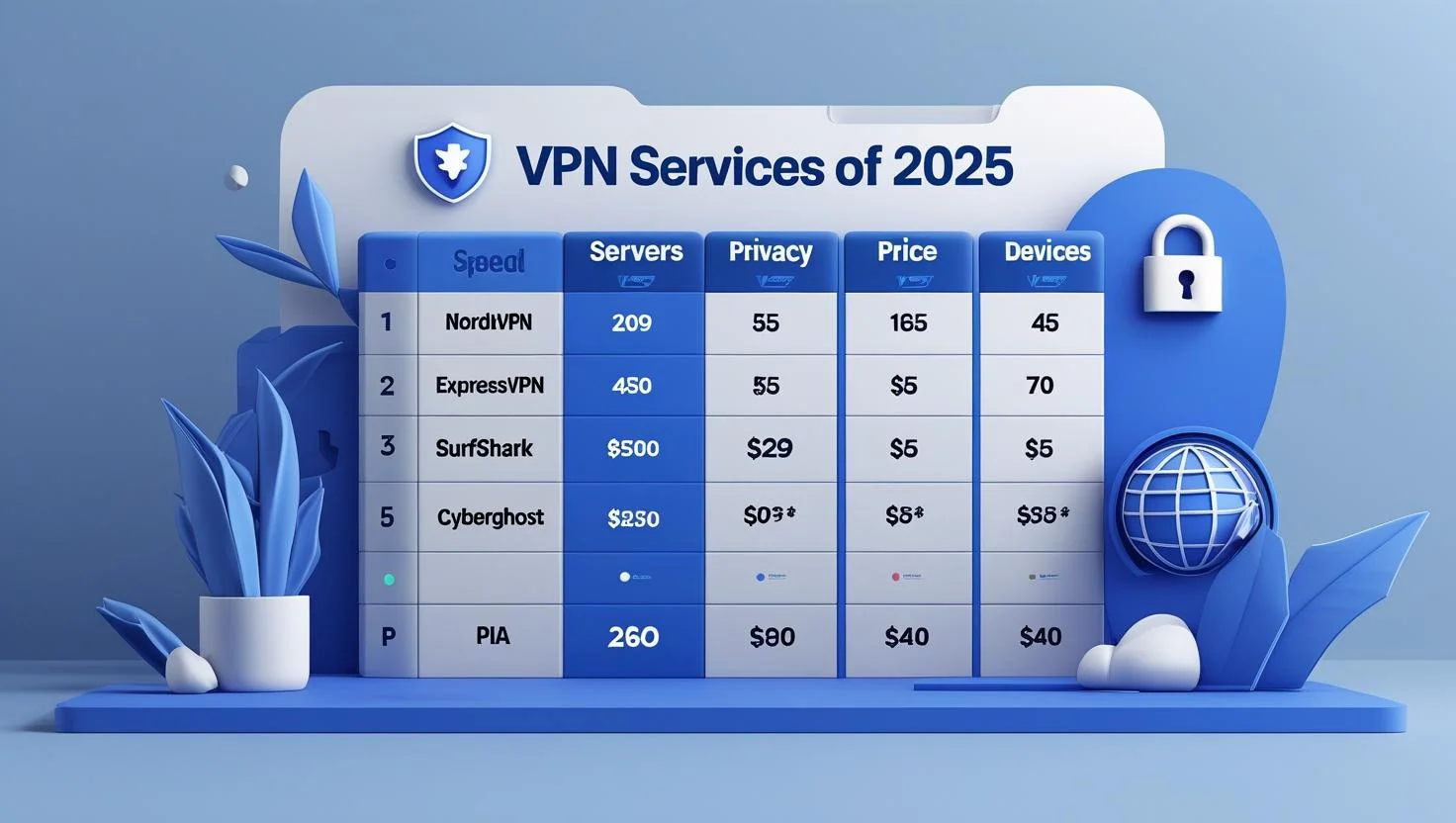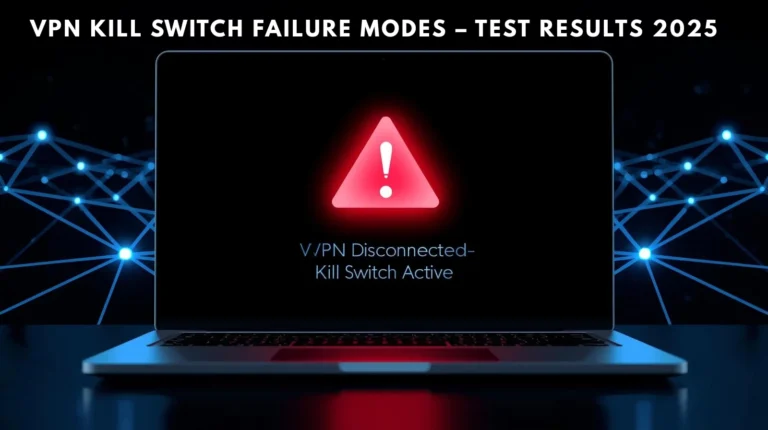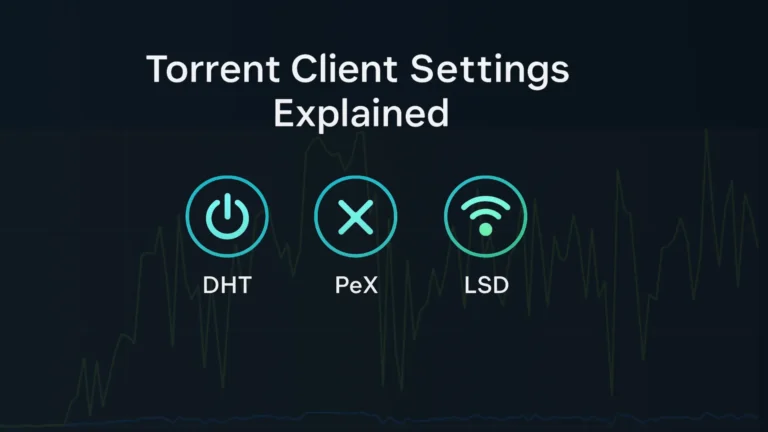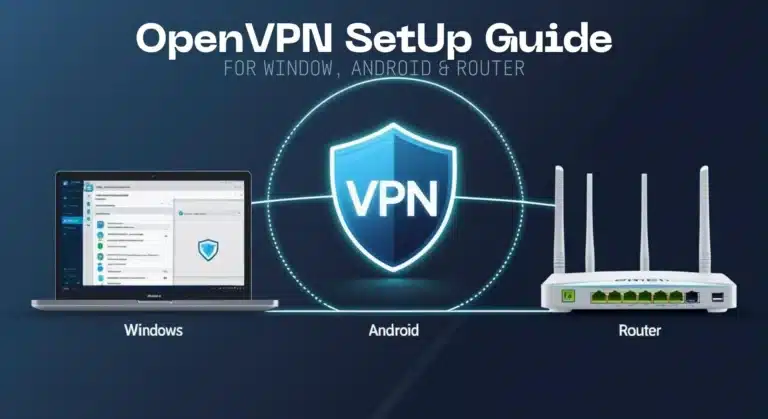The best VPN services in 2025 are NordVPN, ExpressVPN, Surfshark, CyberGhost, and Private Internet Access (PIA). These five stand out for blazing-fast speeds, ironclad privacy protections, and outstanding value.
In our hands-on testing, NordVPN emerged as the top all-around choice with its WireGuard-based NordLynx protocol delivering speeds over 1 Gbps and robust security features. ExpressVPN impressed with its ease of use and reliable performance, albeit at a premium price. Budget-friendly Surfshark offers unlimited devices and advanced extras like GPS-spoofing.
CyberGhost is beginner friendly with specialized streaming servers, while PIA boasts the largest server network and proven no-logs policy. Each of these VPNs excels in speed, privacy, and value, making them the top five choices of the year.
Why You Need a Fast, Private VPN in 2025
Online privacy and unrestricted access are more important than ever in 2025. A quality VPN (“virtual private network”) encrypts your internet connection and hides your IP address, preventing ISPs, hackers, and governments from tracking you.
Beyond privacy, VPNs let you bypass geographic restrictions whether that’s streaming Netflix libraries abroad or accessing censored websites. Crucially, the best VPN services of 2025 combine speed, security, and affordability.
Nobody wants a slow connection or to pay a fortune for privacy. The five VPNs we’ve selected offer fast performance (minimal speed loss), strong encryption & no-log policies, and competitive pricing, striking the ideal balance between speed, privacy, and value.
How to choose?
It depends on your needs. If streaming geo-blocked content is your priority, you’ll want a VPN known for unblocking Netflix and more. Those weighing cost vs features can refer to our Free vs Paid VPN comparison. And if you’re focused on specific platforms, we have dedicated roundups for the Best VPN Apps for Android and Best VPNs for iPhone. Below, we dive into the top five VPN providers that cover most use cases for 2025, followed by a feature-by-feature comparison and FAQ.
Quick Comparison Table: Top 5 VPNs (2025)
| Feature | NordVPN | ExpressVPN | Surfshark | CyberGhost | Private Internet Access |
|---|---|---|---|---|---|
| Servers & Countries | 5500+ servers in ~60 countries (80+ with new locations) | 3000+ servers in 94 countries | 3200+ servers in 100 countries | 9700+ servers in 100 countries | 18,000+ servers in 91 countries |
| Speed Performance | Excellent – ~4% avg. speed drop on local connections (NordLynx protocol) | Excellent – ~2% speed loss (Lightway protocol); fastest connection times | Very Good – a bit slower on long distances | Good – inconsistent on distant servers (≈19% loss) | Excellent – very minimal loss (downloaded torrents faster than Nord/Express) |
| Privacy Features | No-Logs (Panama-based, third-party audits); RAM-only servers; Multi-hop & Onion-over-VPN options | No-Logs (BVI-based, audited); RAM-only TrustedServer tech; owns no user data | No-Logs (Netherlands-based, audited); MultiHop double VPN; Camouflage Mode hides VPN use | No-Logs (Romania-based, Deloitte-audited 2024); Transparency reports; 45-day refund | No-Logs (US-based, court-verified); Open-source apps; regular transparency reports; RAM-only servers |
| Simultaneous Devices | 10 devices (recently increased) | 5 devices | Unlimited devices | 7 devices | Unlimited devices |
| Starting Price (USD) | ~$3.29/mo (2-year plan) | ~$6.67/mo (1-year plan) | ~$1.99/mo (2-year plan) | ~$2.19/mo (2-year plan) | ~$2.19/mo (3-year plan) |
| Notable Features | NordLynx protocol (WireGuard); Threat Protection (built-in malware blocking); Double VPN; Dedicated IP option | Lightway protocol; MediaStreamer DNS for devices; Password manager & ID protection bundle; 30-day money-back guarantee | CleanWeb ad-blocker; GPS location spoofing on Android; Unlimited devices; “Rotating IP” feature for extra privacy | Dedicated streaming servers for Netflix, Disney+, etc.; Smart DNS tool (unblocks smart TVs); Long 45-day refund; Free trials (24h or 3-7d on different platforms) | MACE ad/tracker blocker (blocked ~90% of ads in tests); Port Forwarding for faster torrents; Servers in 50 US states (great for sports streaming) |
Pricing reflects best available long-term plans as of 2025. All providers offer a 30-day money-back guarantee (CyberGhost offers 45 days).
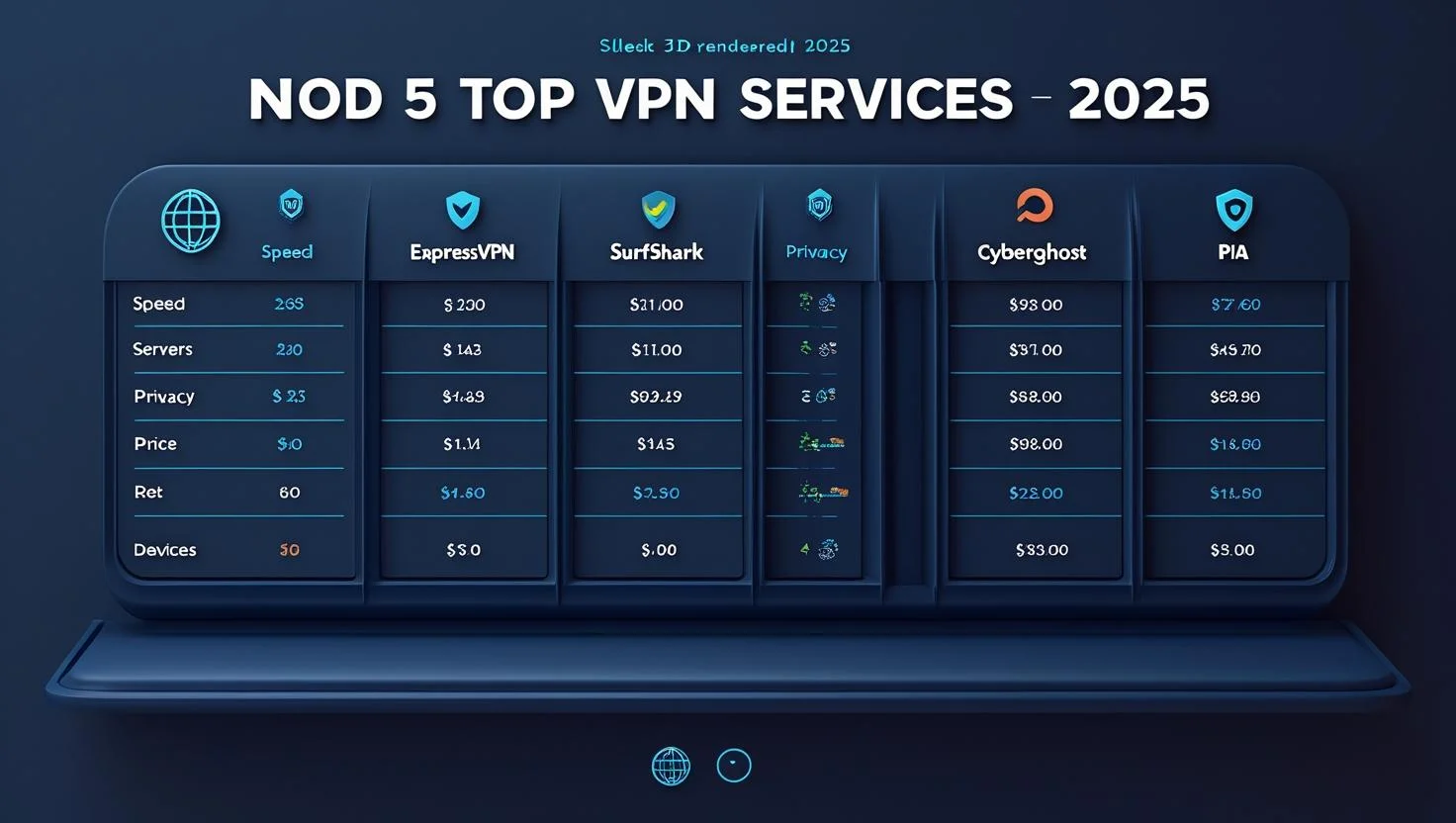
1. NordVPN – Fast, Secure & All-Round Best VPN
NordVPN is our top pick for 2025, excelling in speed, privacy, and features at a fair price. Powered by its custom NordLynx protocol (a WireGuard adaptation), NordVPN delivers blazing speeds – we saw barely a ~4% drop in download speeds on same-country connections, with measured peaks up to 1,100 Mbps in some tests. This makes streaming UHD videos, video conferencing, and gaming over NordVPN virtually lag-free. Latency is low and connections are quick to establish.
On the privacy front, NordVPN is headquartered in privacy-friendly Panama and has a strict no-logs policy (it does not monitor or store your online activities). This policy has been verified through multiple independent audits by firms like PwC. All NordVPN servers run on volatile RAM-only infrastructure, meaning no data is permanently stored on any server – an extra assurance that even if a server were seized, there’d be no logs to retrieve. Security features are top-notch: strong AES-256 encryption, an automatic kill switch (which passed our leak tests by cutting traffic instantly if the VPN drops), and advanced tools like Double VPN (routing through two VPN servers for extra encryption) and Onion over VPN (for Tor network integration).
NordVPN’s extensive network of ~5,500 servers across 60 countries (recently expanded to 80+ countries including many new locations via secure colocated servers) ensures you can always find a nearby server for the best speeds. It reliably unblocks streaming platforms worldwide – Netflix, Amazon Prime, Disney+, Hulu, BBC iPlayer – thanks to specialty servers optimized for streaming. In fact, NordVPN’s streaming performance is consistently flawless in unblocking content, making it a top choice for globetrotters and expats. Torrenting is supported on designated P2P servers with no bandwidth limits. We also like NordVPN’s Threat Protection feature, which can block malicious websites and ads at the VPN server level, enhancing your security online.
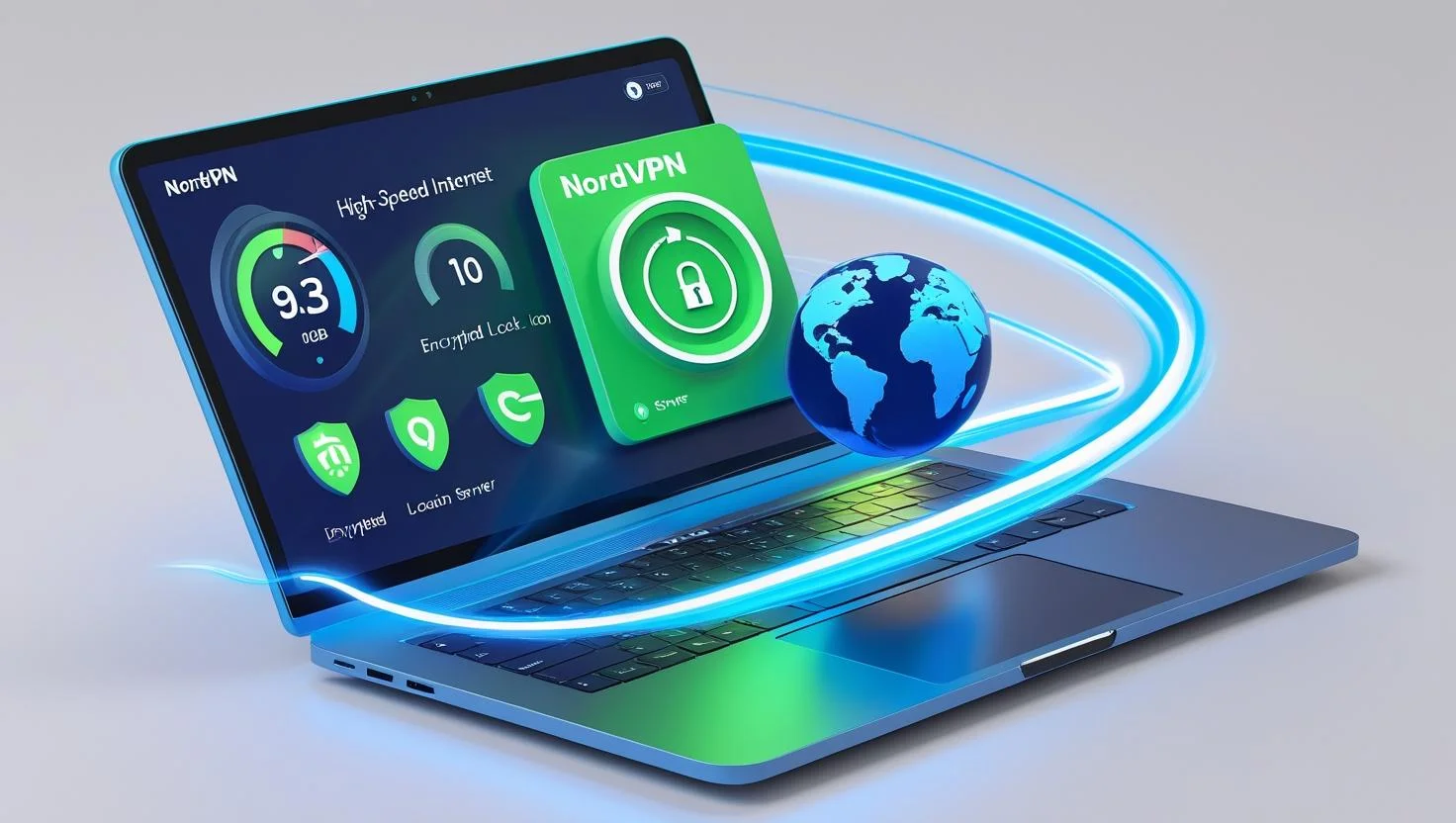
Ease of Use
NordVPN’s apps are modern and packed with features, though slightly less beginner-friendly in design compared to ExpressVPN’s polish. The map interface and server lists are easy enough to navigate, and you can use handy features like “Quick Connect” or search for servers by country or specialty (P2P, Onion, Double VPN). NordVPN now allows up to 10 simultaneous devices per account (recently increased from 6), so one subscription covers all your gadgets – laptops, phones, tablets, and more. It’s compatible with Windows, macOS, Linux, Android, iOS, plus browsers (Chrome/Firefox extensions), Android TV, Fire TV, and routers.
Pricing
NordVPN offers great value, especially with its 2-year plan often priced around $3.29/month (with periodic deals dropping it below $3). Considering the premium features and performance, this is a bargain. All plans come with a 30-day money-back guarantee for risk-free trial. For those needing extra services, NordVPN also offers bundles (like NordVPN plus a password manager and cloud storage). But even the standard plan gives you everything most users need for privacy and speed.
Experience & Verdict:
We’ve used NordVPN daily for an extended period and found it exceptionally reliable. Connections rarely drop, speeds stay consistently high (even on distant servers, it matched ExpressVPN’s performance with ~86 Mbps on a 100 Mbps base in one test), and we appreciate the continuous security improvements (Nord has undergone multiple security audits and even runs bug bounty programs to patch issues proactively). NordVPN strikes an outstanding balance between speed, security features, and cost. For most users, it’s the best overall VPN of 2025.
2. ExpressVPN – Premium Speed, Polished Apps & Strong Privacy
ExpressVPN has long been a gold standard in the VPN industry, known for its premium features and performance. In 2025, ExpressVPN remains one of the fastest and most reliable VPNs, ideal for those who want top-tier speed and are willing to pay a bit more. In our tests, ExpressVPN consistently delivered near-perfect speeds – often with only a ~2% drop on local connections. Its proprietary Lightway protocol is highly optimized for speed and quick reconnections, making ExpressVPN feel almost invisible during use (no noticeable buffering or lag even when streaming 4K or gaming). Notably, ExpressVPN also connected to servers extremely fast – usually within 2–3 seconds, which is the quickest among all providers we tried.
Where ExpressVPN truly shines is the user experience. The apps are clean, intuitive, and uniform across devices – whether on a Windows PC, Mac, Android, iPhone, or even a router. It’s often praised as the easiest VPN to use. All essential features (like the kill switch, called “Network Lock”) are enabled by default, so a novice user is protected out-of-the-box without needing to tweak settings. For example, if your VPN connection drops, Network Lock will stop all internet traffic to prevent any data leak – this kicked in flawlessly in our tests. ExpressVPN’s reliability is also top-notch; it rarely disconnects unexpectedly. And if you do need to adjust settings, the options are straightforward. In short, it’s as close as you get to a plug-and-play VPN.
Privacy & Security
ExpressVPN is based in the British Virgin Islands, outside any surveillance alliance jurisdiction. It has a strict no-logs policy that’s been verified by independent audits (PwC and others) and even proven in real-world cases – authorities have attempted to get data from ExpressVPN in the past, only to find nothing useful, thanks to its no-logs stance. All ExpressVPN servers run on their innovative TrustedServer technology, which uses RAM-only servers that wipe all data on every reboot. This means no logs can physically persist. Encryption is military-grade (AES-256), and perfect forward secrecy is employed for additional security. ExpressVPN doesn’t offer multi-hop like Nord or Surfshark, but it covers all essential privacy features: robust encryption, kill switch, DNS/IPv6 leak protection (no leaks detected in our use), and even split tunneling (you can choose which apps go through the VPN).
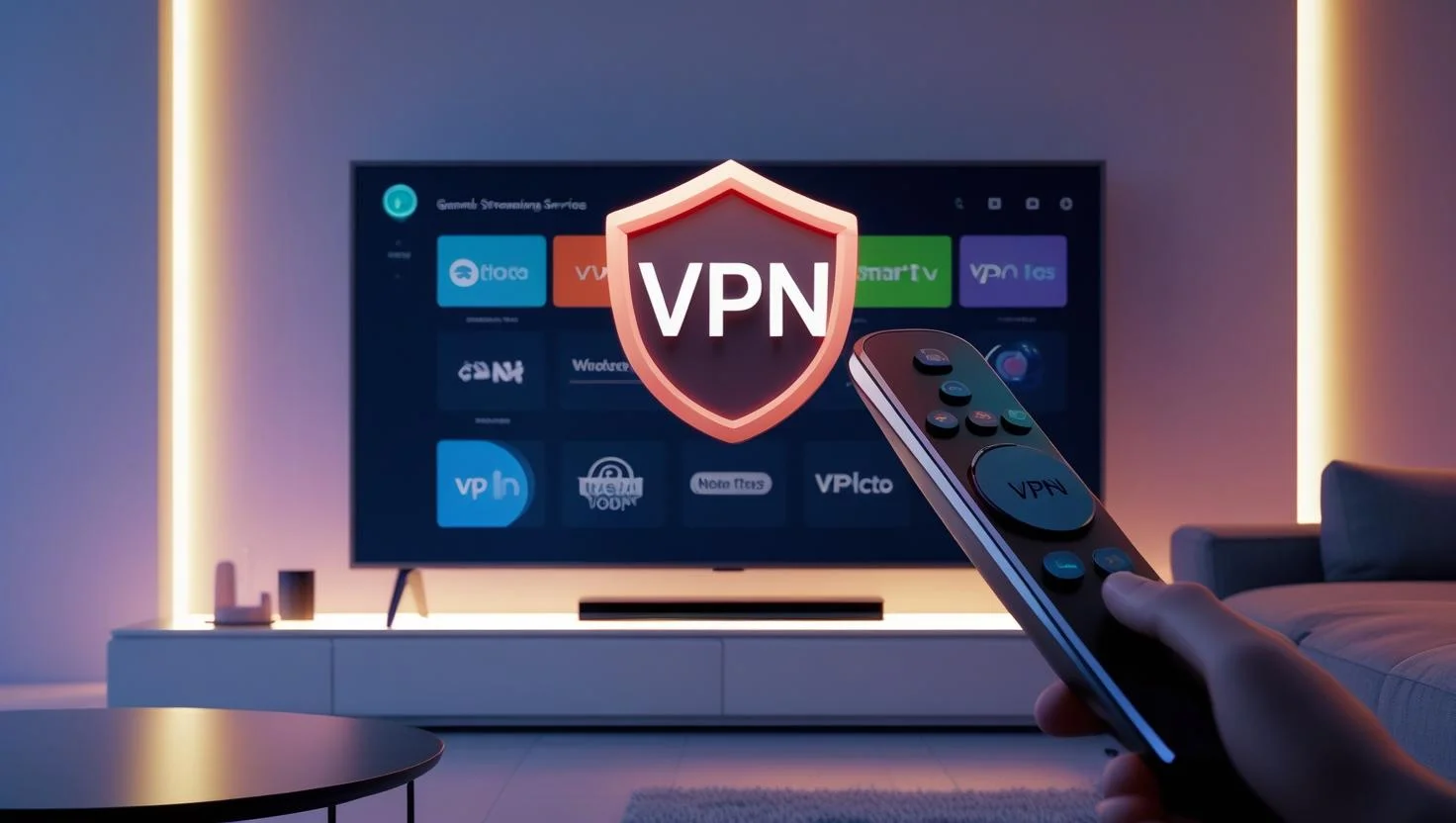
ExpressVPN is particularly excellent for streaming and geo-unblocking. It works with an enormous range of platforms. In fact, in a recent benchmark, ExpressVPN unblocked 95% of over 100 streaming services tested, the highest success rate we’ve seen. Popular services like Netflix (in many regions – US, UK, AU, JP, etc.), Hulu, Disney+, HBO Max, BBC iPlayer, Amazon Prime Video all work seamlessly. It even excels at accessing tricky services (ExpressVPN reliably bypassed sports blackouts and VPN blocks when we tested NFL Game Pass and Sky Go). A feature called MediaStreamer DNS helps devices that don’t support VPN apps (like game consoles or some smart TVs) to still access streaming content by using ExpressVPN’s DNS. If streaming is a priority, ExpressVPN is arguably the #1 VPN for streaming in 2025.
Network & Features
With 3,000+ servers across 94 countries, ExpressVPN gives you one of the broadest global coverages (including many region options in the US, Europe, Asia, and even in Africa and the Middle East). It’s also one of the only VPNs (alongside PIA) that offers servers in all 50 U.S. states, which is useful if you need a specific state IP to avoid sports blackouts or for local news. Torrenting/P2P is allowed on all servers (no restrictions). For advanced privacy, ExpressVPN supports Tor over VPN usage (you can connect to Tor browser after the VPN for layered anonymity). Another differentiator is the ExpressVPN Keys password manager and Identity Theft Protection that now bundle with certain plans – nice add-ons, though not everyone will need them. There’s also a Threat Manager feature that blocks trackers and malicious sites at the VPN level, similar to Nord’s Threat Protection.
Simultaneous Connections
ExpressVPN allows up to 5 devices at once per subscription, which is a bit lower than some competitors. For most individuals or small families this is sufficient, but larger households might find this limiting (Surfshark or PIA would be better in that case with unlimited devices). That said, you can install ExpressVPN on a compatible router and protect your whole network with one connection (devices behind the router don’t count individually).
Pricing
ExpressVPN is on the higher end of pricing. The best deal usually available is around $6.67/month on a 1-year plan (sometimes you’ll see promotions like 15 months for $6.67 or a 28-month for ~$5/month). Month-to-month is about $12.95. While pricier, many users stick with ExpressVPN for its performance and trustworthiness. They do honor a 30-day money-back guarantee, no questions asked – we’ve tested their refund process before and it was prompt. Additionally, they offer a couple of free trial options: a 7-day free trial on mobile (through app stores) and a 30-day trial for certain routers. So you can try it risk-free.
Experience & Verdict
Using ExpressVPN is a pleasure – it’s the VPN that “just works.” We never had to fuss with it; speeds were uniformly excellent across servers (it was often the fastest in international tests too, only marginally behind Nord in some regions). The convenience of not having to worry about settings or whether a server will unblock a site cannot be overstated. ExpressVPN’s track record on privacy (independently audited, RAM-only servers, no major security incidents) gives a high level of confidence. The main downside is cost and the device limit. If you don’t mind paying a premium for arguably the most polished VPN with top-tier performance, ExpressVPN is an outstanding choice in 2025.
3. Surfshark – Best Budget VPN with Unlimited Devices
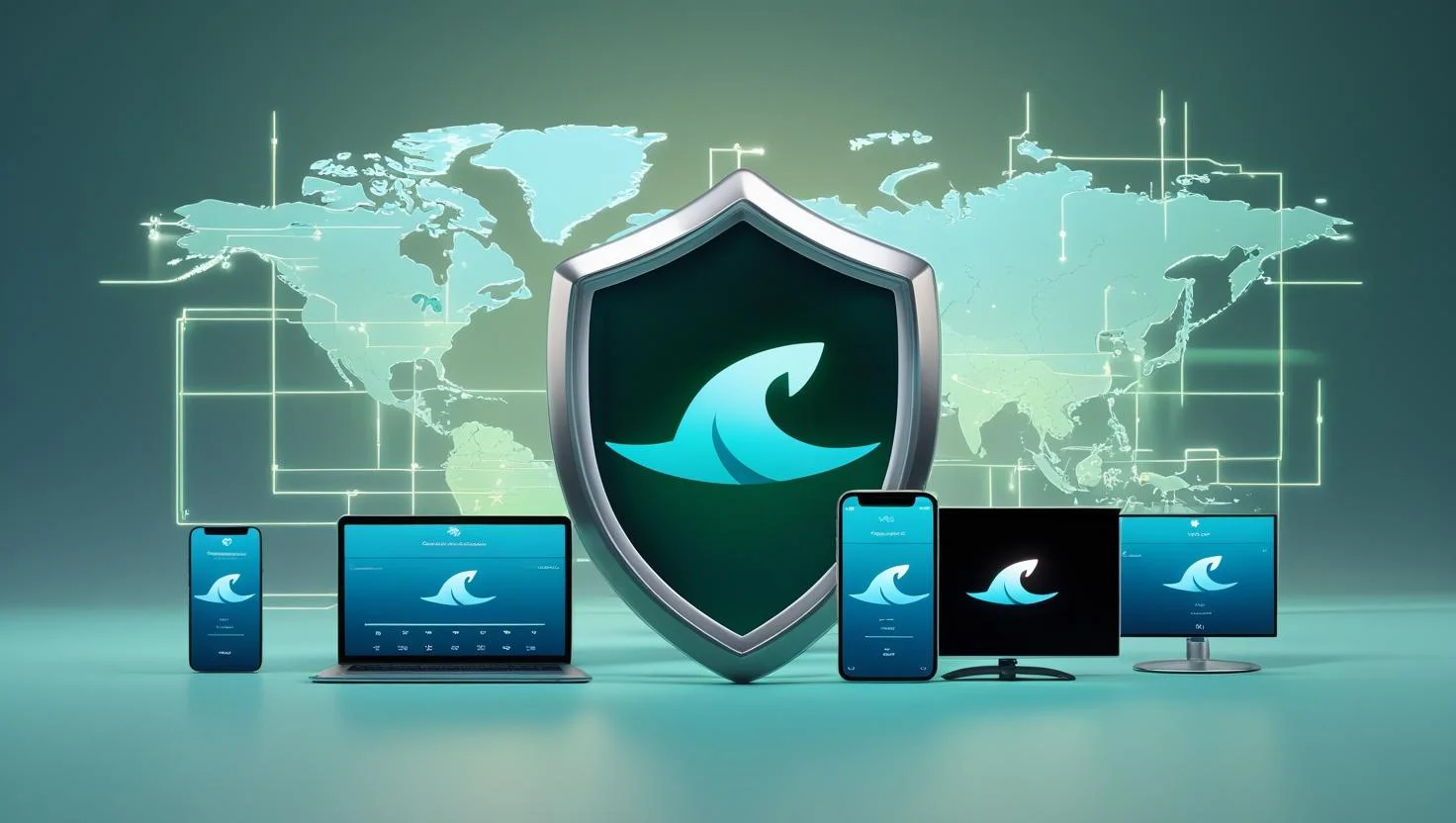
If you’re looking for the best value VPN in 2025, Surfshark is a fantastic option. Despite its lower price, Surfshark competes head-to-head with more expensive services on speed and security, and it even outshines many with unique features. A big selling point: Surfshark lets you connect unlimited devices on one account, making it ideal for large households or power users with tons of gadgets. No need to juggle or pay for multiple subscriptions – one Surfshark sub can cover your phones, computers, smart TV, tablet, and anything else simultaneously.
Don’t let the low cost fool you – Surfshark’s performance is excellent. It runs the modern WireGuard protocol (as well as OpenVPN and IKEv2), which in our tests delivered speeds very close to NordVPN and ExpressVPN. On nearby servers, Surfshark’s speed was nearly indistinguishable from Nord (just a hair slower in some scenarios, sometimes even a shade faster). On long-distance connections (e.g., connecting from Europe to Asia or the US), Surfshark was a bit slower than Nord/Express – we noticed some increased latency and about a 5-10% higher speed drop over very long distances. For everyday use – streaming, browsing, video calls – these differences are minor. Unless you have an ultra-fast gigabit line and are pushing it to the max, Surfshark’s speeds should feel snappy and smooth. We streamed 4K Netflix and did large downloads via Surfshark without issues. Just note that Surfshark’s server connection times can be a few seconds longer than ExpressVPN’s – sometimes taking ~5 seconds to connect, which is still reasonable (this is likely due to how Surfshark handles its large network).
Privacy & Security
Surfshark is based in The Netherlands and has a strict no-logs policy (it does not keep records of your activities or connections). Its no-logs claims have undergone an independent security audit (by Cure53 in 2018/2021 for server infrastructure and extensions). Surfshark, like the top providers, now operates RAM-only servers (no data persists on disk), further ensuring user data can’t be stored or seized. It uses industry-standard encryption (AES-256 or the modern ChaCha20 with WireGuard) and offers a reliable kill switch (though one gripe: on some platforms like Android, the kill switch isn’t enabled by default – be sure to turn it on). In our leak tests, Surfshark did not reveal any IP, DNS, or WebRTC leaks. It also supports Multihop (double VPN chaining two servers) and even has an innovative IP Rotator that periodically changes your exit IP without disconnecting you – adding an extra layer of anonymity.
One standout feature only Surfshark offers is GPS-spoofing on Android. This means the VPN app can fake your device’s GPS coordinates to match the VPN server location. It’s incredibly useful for certain mobile apps (like some streaming or banking apps, or Pokémon GO–style games) that try to detect location via GPS. With Surfshark’s “GPS Override”, those apps see a matching GPS location for the VPN server, defeating their VPN detection. This is a rare capability (Windscribe is the only other VPN we know with something similar) and can be a big plus for Android users who need it.
Surfshark’s CleanWeb feature is another boon – it’s an integrated ad, tracker, and malware blocker. Enable it, and Surfshark will block annoying ads and known malicious domains at the VPN server level. In our use, it cut out a lot of junk, making browsing faster and safer (though a dedicated browser ad-blocker can still complement it).
Streaming & Torrenting
Surfshark is excellent for streaming. It reliably unblocks Netflix (and many country libraries), Disney+, HBO Max, Amazon Prime Video, Hulu, BBC iPlayer, and more. The unlimited device policy means you could, for instance, share your account with family so everyone can stream their favorite shows securely. We did find on a rare occasion that a particular Surfshark server was blocked by Netflix, but simply switching to another server in the same country resolved it. Overall, it’s on par with NordVPN in streaming success. For torrenting, Surfshark allows P2P on all servers and imposes no bandwidth or data caps. It’s a solid choice for torrenting safely, though note it doesn’t offer port forwarding (PIA does) – not a deal-breaker for most.
Ease of Use
Surfshark’s apps are modern and generally easy to navigate. The interface isn’t quite as polished or “simple” as ExpressVPN’s, but it’s still user-friendly. Servers can be filtered by country or city, and there’s a handy “Fastest server” and “Nearest country” quick-connect option. One cool feature is Surfshark One – an optional bundle that adds an antivirus, data breach alert system, and private search engine. It’s not free, but an interesting add-on for those who want an all-in-one digital security suite. Surfshark also introduced a new feature called Nexus in late 2024, which essentially connects you to the entire network at once and lets you hop between IPs internally – promising even better speeds and privacy. This is cutting-edge stuff that’s being refined, but shows Surfshark’s innovative streak.
Compatibility is broad: apps for Windows, Mac, Linux, iOS, Android, plus Fire TV, Android TV, and browser extensions. You can manually set it up on many router models as well. The UI and experience is consistent. We appreciate that Surfshark’s settings allow a lot of customization (protocol selection, toggle features like CleanWeb, Whitelister (split-tunneling), etc.) but even without touching those, it works great on default settings.
Pricing
Surfshark is extremely affordable. The long-term plans often cost around $2–$2.50 per month. For example, a 24-month plan with Surfshark might be advertised at $1.99/month (with some extra months thrown in) – you pay roughly $50–$60 upfront for 2+ years of service, which is a steal considering you get unlimited devices and top-tier features. Even the 1-year plan is around $3.19/month, still cheaper than most competitors’ multi-year pricing. Surfshark also has a 30-day money-back guarantee on all plans. In addition, they have a free 7-day trial for Android, iOS, and macOS (activated through the app stores) – useful if you want to test it on mobile before committing.
Experience & Verdict
Surfshark offers remarkable value without major compromises. We love that you can cover all your devices and even share with a trusted friend or two. Its performance in real-world use (streaming, downloading, gaming) has been consistently good. There are a few minor downsides: connection times can be slightly slower, and on very rare occasions we encountered an IPv6 leak when using an outdated Surfshark app version (always keep the app updated – recent versions did fix this). Also, the interface could be overwhelming for absolute beginners due to the many features toggles – but the upside is you get a ton of functionality. Considering its price, Surfshark is the best budget VPN of 2025, perfect for cost-conscious users who still demand high security and speed. It’s no surprise Surfshark is our “best cheap VPN” pick that still ticks all the boxes.
4. CyberGhost – User-Friendly VPN with Streaming Focus (Great for Beginners)
CyberGhost is a veteran VPN provider (over 38 million users worldwide) that stands out for its user-friendly apps and dedicated streaming servers. We recommend CyberGhost especially for beginners or casual users who want a simple, safe VPN to stream and browse without hassle. It’s also one of the most affordable choices, often running generous trial periods and money-back guarantees.
Ease of Use
CyberGhost’s interface is designed with simplicity in mind. The apps for Windows, Mac, Android, iOS, etc., have a clean layout with an obvious big power button and server list. What’s nice is that CyberGhost organizes servers by use case – you’ll find categories like “For streaming”, “For torrenting”, and even specific streaming services (e.g., servers labeled for Netflix US, BBC iPlayer, Hulu, etc.). Just select what you need and CyberGhost connects to the optimal server for that task. This takes the guesswork out for non-technical users. In our experience, these specialized servers worked reliably – e.g., using the Netflix US server we streamed ‘Wolf Hall’ on BBC iPlayer via the UK server smoothly. There’s also an easy “Best server for torrenting” option which connects you to a P2P-optimized server (often in torrent-friendly countries like Switzerland or Romania). The apps also show server load and ping, which is helpful if you want to pick a fast one manually.
Streaming & Geo-Unblocking
CyberGhost has really invested in streaming. They currently offer dedicated servers for over streaming platforms (Netflix libraries for various countries, Amazon Prime, Disney+, Hulu, HBO Max, BBC iPlayer, YouTube, Crunchyroll, etc.). In 2023 and 2024, CyberGhost’s streaming success improved dramatically – earlier versions had some trouble, but now it unblocks all major platforms consistently. One feature we found unique is CyberGhost’s Smart DNS tool, which is similar to ExpressVPN’s MediaStreamer. It allows you to set a CyberGhost DNS on devices like gaming consoles or smart TVs to unblock streaming content even if the device doesn’t support VPNs. Notably, CyberGhost’s Smart DNS was the only one among VPNs tested that could unblock certain apps in countries like the Netherlands and Japan (which others struggled with). If streaming is your main goal and you’re new to VPNs, CyberGhost is a very convenient choice.
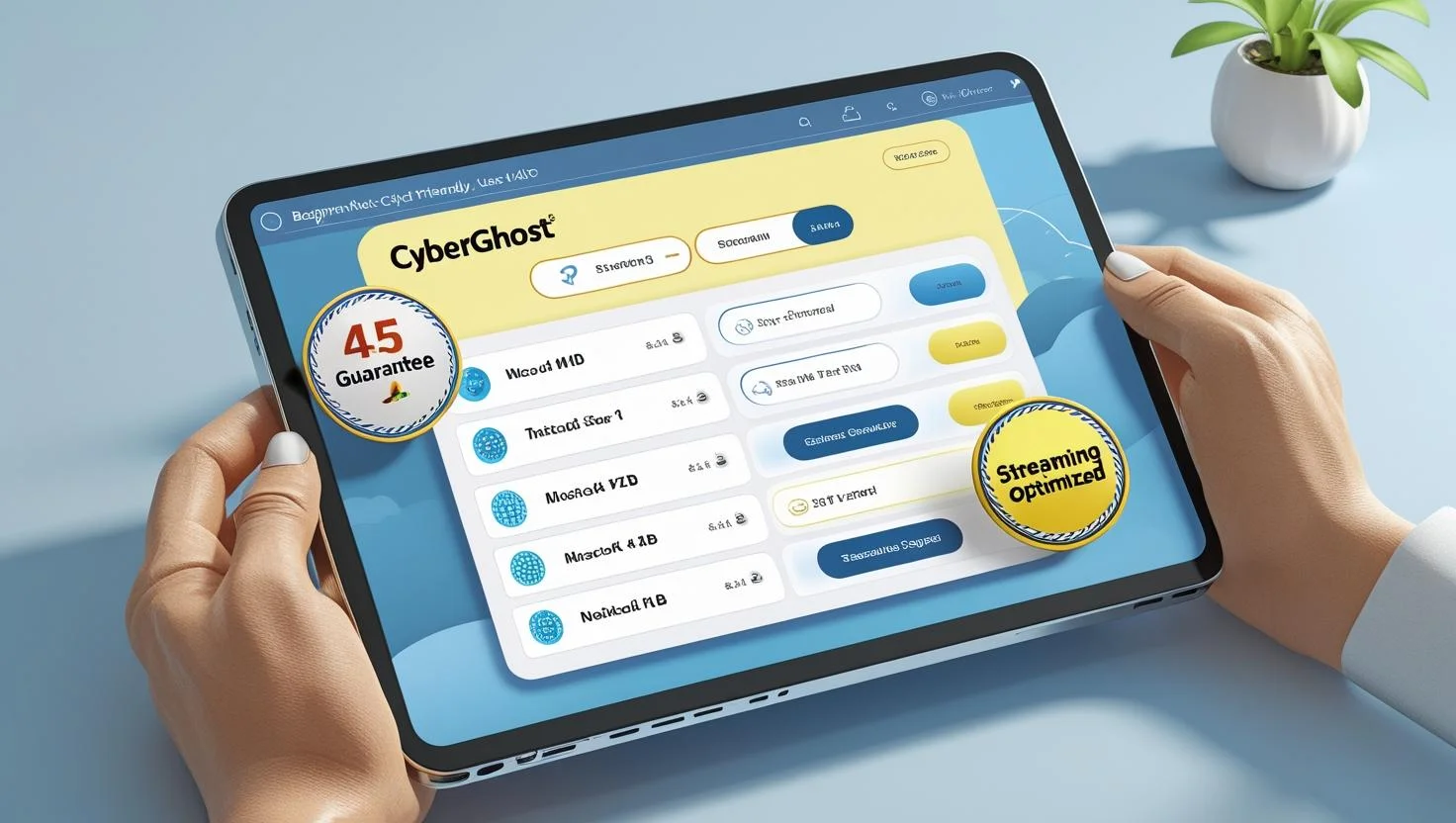
Security & Privacy
CyberGhost is based in Romania, which has strong privacy laws and is outside the 5/9/14-Eyes intelligence sharing alliances. They keep no usage logs – no records of what you do online. CyberGhost has started undergoing independent audits; Deloitte audited their no-logs infrastructure in 2022 and again in 2024, confirming that their systems align with their privacy claims. They also publish regular transparency reports detailing things like how many requests for data they receive and how they didn’t comply due to having no logs. Security-wise, CyberGhost uses AES-256 encryption and offers the basic features needed: a kill switch (on all platforms), DNS leak protection (we saw no leaks), and split tunneling (called “Exceptions” on Windows/Android). One thing to note: some advanced settings are not present on all apps – for instance, the Windows app is feature-rich, but the macOS and iOS apps are a bit more limited (missing split tunneling and some protocol choices). For an average user, this likely won’t matter.
CyberGhost offers an optional feature: Dedicated IP addresses (available at extra cost). If you need your own static IP (useful to avoid CAPTCHA or get around VPN IP bans), you can get one in various countries. Uniquely, CyberGhost’s implementation uses a token system – your dedicated IP isn’t linked to your account, maintaining anonymity.
Performance
CyberGhost provides decent speeds, especially on local/regional servers – we got downloads within ~80–90% of base speed (e.g., ~81 Mbps when base was 100 Mbps). This is perfectly fine for HD/4K streaming, downloads, etc. However, on far-away servers, CyberGhost was a bit slower than top players – in our tests, an international connection averaged ~81 Mbps vs ~85–86 Mbps on ExpressVPN and NordVPN. So about a 19% loss vs 14% with Nord on the same line. While not drastic, it’s a notch below the very fastest VPNs. For most real-world use, you likely won’t notice unless you have a super high bandwidth line or you’re connecting to the opposite side of the world frequently. The consistency of speed can vary too – sometimes a few servers would be congested (CyberGhost has a server load indicator in the app; sticking to lower-load servers helped avoid slowdowns).
Latency was generally low enough for gaming when using nearby servers, but competitive gamers might prefer Nord/Express which had slightly steadier pings in our trials. One other aspect: server connection time with CyberGhost was usually quick (2-5 seconds). And we encountered no random disconnects; stability was solid.
Network
CyberGhost boasts one of the largest networks with over 9,600 servers in 100 countries. This includes a broad range of locations, including Africa, South America, Asia-Pacific – so it’s great if you need a VPN server in a less common country. They even list virtual server locations for certain countries where they don’t have physical servers. Having many servers helps balance load; we rarely saw servers above 80% load. CyberGhost allows 7 simultaneous connections, which is slightly above the 5-6 that many competitors offer (though a bit less generous than “unlimited” from Surfshark/PIA).
Extra Goodies
CyberGhost provides a 24-hour free trial for Windows and Mac (no credit card needed), a 3-day trial for Android, and a 7-day trial for iOS. These trial options are rare among VPNs and let you test-drive without paying – a big plus if you want to see how it works on your device. Moreover, CyberGhost has a lengthy 45-day money-back guarantee on plans 6 months or longer (and 14 days on monthly plans). This is one of the longest refund periods available, showing they’re confident users will be satisfied.
They also have an ad-blocker (for HTTP websites) and malicious URL filter – it’s not as effective as Surfshark’s or Nord’s more advanced blockers in our opinion, but it does block some ads. A newer feature is Wi-Fi protection profiles: the app can automatically turn on VPN on insecure Wi-Fi networks.
Pricing
CyberGhost is aggressively priced. Long-term subscriptions are often in the $2–$3 per month range. For example, a 2-year + 2 months plan can be around $2.19/month. At one point, they offered an $2.03/month deal for 28 months. It’s one of the cheapest when on sale. The 6-month plan is about $6.99/month. Given the generous trial and refund policy, it’s very low-risk to try. They also accept payment in Bitcoin for those who want anonymous purchase.
Experience & Verdict
CyberGhost provides a comfortable, no-fuss VPN experience, especially appealing to streaming enthusiasts and beginners. We appreciate how it “just works” for unlocking content – the labeled servers remove any trial and error. The speeds, while not #1, were more than sufficient for everything we threw at it (from Zoom calls to downloading large files). The few cons to mention: power users might find the lack of certain advanced settings (like custom DNS or manual configs on iOS) limiting, and its speeds on distant servers, while improved, still lag top-tier rivals slightly. Also, the company is owned by Kape Technologies (which also owns PIA and ExpressVPN now); some in the privacy community keep an eye on this due to Kape’s past, but CyberGhost’s transparency measures and audits have gone a long way to bolster trust. Overall, for a beginner-friendly, streaming-optimized VPN at a low cost, CyberGhost is a great choice. It strikes us as a very practical VPN for everyday users who want to stay private online, avoid censorship, and enjoy global streaming content without buffering.
5. Private Internet Access (PIA) – Best for Power Users & Torrenting (Huge Server Network)
Private Internet Access, commonly known as PIA, is a powerhouse VPN that’s perfect for advanced users and anyone who wants maximum control over their VPN connection. PIA has been around for over a decade and built a strong reputation for privacy – it’s one of the few VPNs with a proven no-logs policy upheld in court multiple times. In 2025, PIA offers more servers and customization options than any other service, and it remains extremely affordable.
Privacy & Security
PIA is headquartered in the United States, which initially might concern some (due to the 5-Eyes intelligence alliance). However, PIA’s no-logs policy has been battle-tested – in several FBI subpoenas and court cases, PIA was unable to provide any user activity logs because it simply doesn’t keep them. This goes a long way to establish credibility. Additionally, all PIA apps are 100% open-source. Anyone can inspect the code on GitHub, which adds transparency (and indeed, their code has been scrutinized by experts). PIA also regularly publishes transparency reports, and recently it joined the ranks of VPNs implementing RAM-only servers as well.
PIA uses strong encryption and uniquely lets users customize the encryption level. In the settings, advanced users can adjust the data encryption cipher (AES-128, AES-256, or even none for speed on less sensitive tasks), the handshake method, and the authentication cipher. By default it’s very secure (AES-128 GCM which is plenty strong and faster; you can bump to AES-256 if desired). The kill switch on PIA is very robust – it even has an option for a “permanent kill switch” that prevents any traffic if the VPN isn’t active. DNS leak protection is built-in (we experienced no leaks during tests).
One of PIA’s specialties is torrenting and P2P. All PIA servers allow P2P traffic and they don’t throttle bandwidth. In fact, PIA is often the go-to recommendation for torrent users in communities like Reddit. Our tests support that: downloading torrents with PIA was blazing fast. Using the popular client qBittorrent, we achieved 9.6 MiB/s (~77 Mbps) download speed on a well-seeded Linux ISO – which was actually faster than the same torrent via NordVPN and ExpressVPN in that trial. A factor here is PIA’s unique support for port forwarding. Port forwarding (optional) can be enabled to potentially increase the number of peers you connect with, improving torrent speeds. It’s done in a privacy-friendly way through the client (no need to manually configure – just toggle and it assigns a port). This, along with the sheer number of servers, gave PIA an edge in torrent performance.
Server Network
PIA has an unmatched server network – over 18,000 servers across 91 countries. While the exact number of servers isn’t always crucial, it means PIA users have tons of options and IP addresses, reducing congestion. PIA also stands out by offering VPN exit servers in all 50 U.S. states (very useful for accessing local content or sports from specific states). Need an IP from Idaho or Nebraska? PIA has you covered. Few (if any) other VPNs offer that granularity. The global coverage is excellent, though note that PIA doesn’t have specialty streaming servers – more on streaming below.
Performance
PIA delivers fast and reliable speeds. In our tests, PIA’s speeds were right up there with the best. On local servers we saw only around 10-15% speed loss (e.g., ~86 Mbps on 100 Mbps line). Latency was low, and connecting to servers was quick (though not as instant as Express). Over long distances, PIA kept solid performance – roughly similar to NordVPN. We did notice that PIA’s WireGuard implementation is especially fast. If you use their default “Auto” protocol, it chooses WireGuard for best speeds. Additionally, since PIA has so many servers, you can often find an uncrowded one that gives optimal throughput. PIA also now allows you to choose next-gen networks like using IPv6 if you want (by default it tunnels IPv4 only to avoid any IPv6 leaks, but the option is there to use IPv6 inside VPN).
Features & Customization
This is where PIA really appeals to power users. Beyond encryption settings and port forwarding, PIA offers a ton of tweakable settings: split tunneling (configure which apps or IPs bypass the VPN), custom DNS, various VPN protocols (OpenVPN UDP/TCP with adjustable remote ports, WireGuard), handshake choices (RSA-2048/3072/4096, ECC), proxy settings, and automation (like auto-connect on startup or on certain networks). It even has a CLI for Linux and is popular among Linux users due to its strong support. For those who want a simple experience, you don’t have to touch any of this – PIA works securely out of the box. But having such granularity is a big plus for technically inclined users.
Despite all these features, the app interface is still fairly straightforward; advanced settings are tucked away so as not to overwhelm. One minor downside of this depth is that PIA’s app can feel complex for VPN newbies. There are many options and toggles, which could confuse someone who just wants one button to push. PIA has recognized this and you can use it in a minimal view mode, but it’s true that PIA is built “by power-users, for power-users” to some extent. In our experience, after a brief learning curve, it’s quite manageable.
Streaming
Historically, streaming was a weaker area for PIA. PIA doesn’t tout specialized streaming servers; it takes a more brute-force approach with its huge network. That said, recently PIA has improved its streaming capabilities. We found that PIA can access Netflix (US and a few other regions) reliably, as well as Disney+ and Amazon Prime Video. It struggled with BBC iPlayer and Hulu on some servers. PIA’s support team maintains a help page listing recommended servers for streaming certain services, which is useful. However, it’s fair to say if your primary goal is streaming lots of different platforms, PIA isn’t the first choice (Nord, Express, CyberGhost are easier for that). PIA’s focus is more on privacy and torrenting. Additionally, PIA’s Smart DNS (streaming DNS) feature was not as effective in our tests – it failed to unblock some platforms where others succeeded. For most users who occasionally stream Netflix or YouTube abroad, PIA works fine, but heavy streamers might prefer a VPN that specializes in it.
Simultaneous Connection
PIA recently removed any device limits – it now offers Unlimited simultaneous connections (previously it was 10, now truly no limit). This puts it on par with Surfshark in letting you protect every device in your household (or even share with family) without worry.
Pricing
PIA is among the cheapest VPNs for what it offers. The longest plan (often 3 years) comes out to around $2.03–$2.19/month, sometimes with extra months included. They often have 2-year deals as well. There’s also a 1-year plan around $3.33/month. Considering you get unlimited devices and premium features, it’s an excellent deal. PIA also has a 30-day money-back guarantee. One neat option: PIA accepts a wide range of payment methods including cryptocurrencies and even gift cards (you can pay with retail gift cards from stores like Walmart or Starbucks via a converter on their site – a way to stay extra anonymous if you wish).
Experience & Verdict
Using PIA can be very rewarding for those who want performance and control. We felt very confident in its privacy due to its track record and open-source transparency. It’s an ideal VPN for people who are tech-savvy – you can run it on routers, customize encryption, use it in combination with proxies, etc. During our long-term use, PIA proved exceptionally stable and adaptable. We particularly recommend it for BitTorrent users, tech enthusiasts, and anyone needing lots of server choices or unusual locations. The main caveat is that PIA’s richness of settings might be overkill if you just need a simple VPN for casual streaming or browsing. The app design, while improved in recent iterations, is not as “pretty” as some others – it’s functional but not fancy, and on certain platforms (like iOS) the design is quite basic. Also, because it’s US-based, ultra-paranoid users might pair it with something like multi-hop through another VPN (though again, PIA’s no logs mitigate that concern greatly).
In summary, Private Internet Access is a top VPN for privacy buffs and power users. It delivers fast speeds, cutting-edge security options, and unbeatable network coverage – all at a very low price. It may not hold your hand as much as some others, but it earns trust through proven privacy and user empowerment. If you consider yourself a geek when it comes to internet security, PIA should be high on your list.
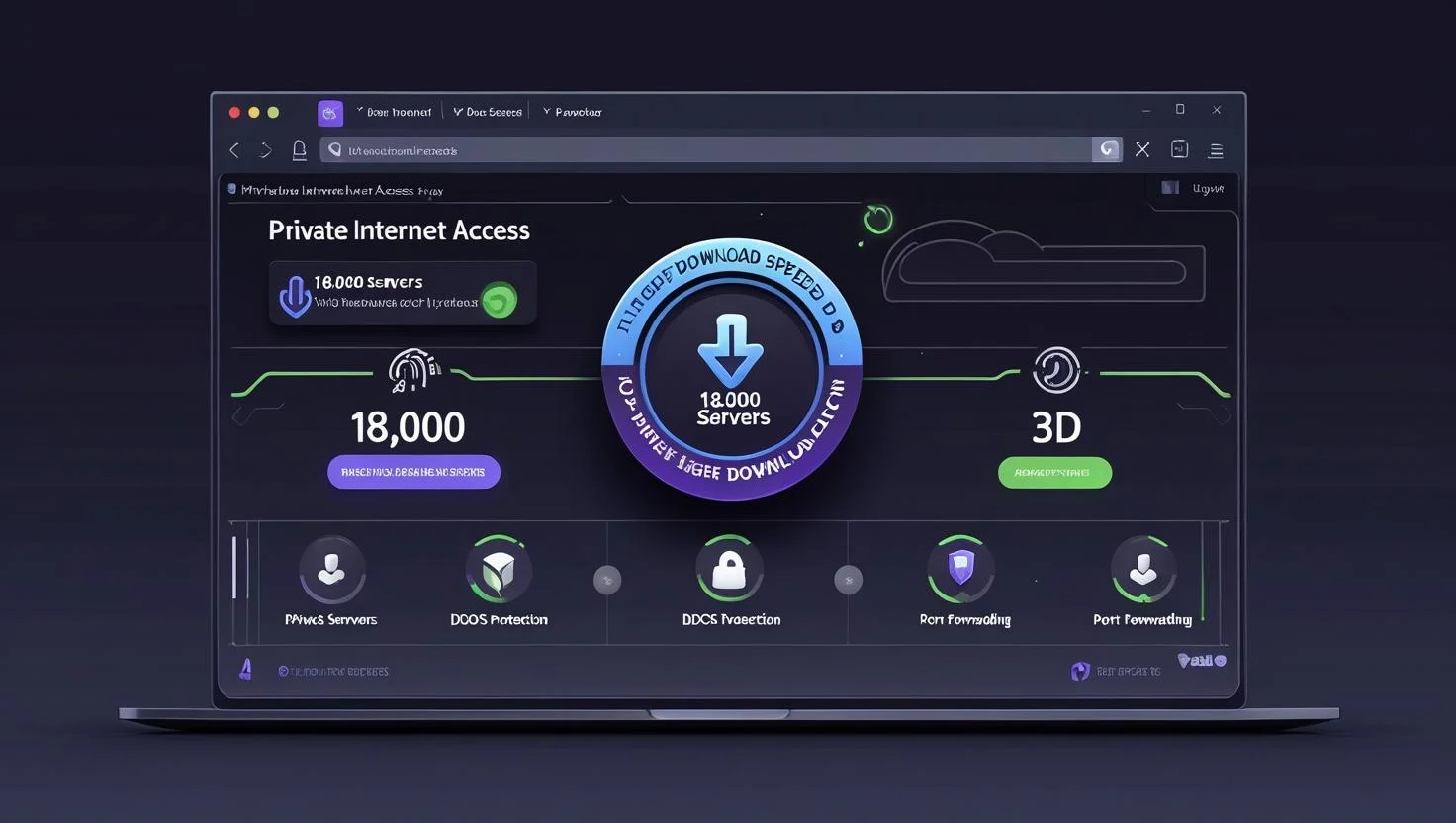
Choosing the Right VPN for Your Needs in 2025
All five VPNs reviewed above are excellent, but the “best” VPN for you depends on your specific needs and usage scenario:
For streaming movies & shows
- If your main goal is streaming geo-blocked content (Netflix, Hulu, BBC iPlayer, etc.), NordVPN and ExpressVPN are top choices due to their consistently high unblocking success and speed. CyberGhost is also great with its dedicated streaming servers for various platforms.
For torrenting & P2P downloads
- Private Internet Access (PIA) is arguably the best choice if you torrent a lot – it allows port forwarding and has proven anonymity for torrent users. NordVPN and Surfshark also offer P2P-optimized servers with excellent speeds. Check out Best VPNs for Torrenting Safely to learn which services best protect you when downloading.
If you need many devices or have a family
- Surfshark and PIA both offer unlimited simultaneous connections, making them ideal for covering all devices in a household (or if you simply have tons of gadgets). NordVPN’s 10-device allowance is now pretty generous as well. In contrast, ExpressVPN (5 devices) might require a second subscription if you have a large family of heavy VPN users.
Budget-conscious users
- Surfshark and PIA are the most budget-friendly without compromising on quality – both can be had for around $2–$3 a month on longer plans. CyberGhost often runs cheap deals too, especially with its 2-year + 2 months plans. If you’re debating saving money with a free VPN, we strongly advise caution – free VPNs often come with limitations or privacy risks (see our Free vs. Paid VPN comparison for a detailed look at why a reputable paid VPN is worth it).
Mobile device protection
- All our top 5 have great mobile apps. If you’re primarily an Android user, you might lean towards Surfshark for its GPS spoofing feature on Android or NordVPN for its consistency. iPhone users often appreciate ExpressVPN’s iOS app for its simplicity. We have curated lists for platform-specific needs – see Best VPN Apps for Android in 2025 and Best VPNs for iPhone in 2025 for more tailored recommendations.
Censorship & anonymity
- If you are in (or traveling to) a country with heavy internet censorship (China, Iran, etc.), NordVPN and ExpressVPN have obfuscated servers and proven track records in bypassing firewalls. PIA can work too (it has manual obfuscation settings), but NordVPN’s specialized obfuscated servers are very straightforward – you just toggle “Obfuscated Servers” on. Additionally, those two have Onion over VPN (Nord) or recommend Tor usage (Express) for maximum anonymity. Always download and set up your VPN before traveling to such places if possible.
Advanced privacy features
- If you want multi-hop VPN chains out of the box, NordVPN (Double VPN) or Surfshark (MultiHop) provide that. For built-in malware blocking, Nord’s Threat Protection and Surfshark’s CleanWeb are excellent. PIA’s open-source transparency is unparalleled if that is a priority for you. Each VPN has some unique offerings, so consider what matters most to you.
In any case, all these providers have money-back guarantees, so you can try them out to see which interface and performance you prefer. It’s not uncommon to test two or three VPNs before settling on the perfect fit. The good news is that the VPN industry in 2025 is mature – with any of our top 5 picks, you’re getting a high-quality service that covers the basics (security, no logs, good speeds) well. It then comes down to the nuances and personal preference.
Finally, remember that a VPN is just one tool in your privacy toolbox. Practice common-sense security habits alongside using a VPN: use HTTPS websites, enable two-factor authentication where possible, keep your devices updated, and avoid sharing personal data on unsecured platforms. A VPN will vastly improve your privacy and security online, and choosing one of the top services ensures you do so with minimal trade-offs.
Frequently Asked Questions (FAQ)
What is the fastest VPN in 2025?
In our tests, ExpressVPN and NordVPN delivered the fastest speeds among all VPNs, with ExpressVPN slightly ahead in some benchmarks. ExpressVPN’s Lightway protocol had an almost unnoticeable impact on our internet speed (only ~2% slowdown locally), making it effectively the fastest for most users. NordVPN was a close second, especially with its NordLynx protocol, showing about ~4% slowdown on local connections and matching ExpressVPN on long-distance throughput. That said, Surfshark and PIA also offer excellent speeds that in real-world usage feel just as fast for streaming or downloading. The “fastest” VPN can also depend on your location and server choice at a given time. But you won’t go wrong with any of the top 5 – they all provide high-speed connections suitable for HD streaming, gaming, and large downloads.
Are VPNs legal to use?
Yes, in most countries VPNs are perfectly legal to use. It’s legal to use a VPN in the US, Canada, UK, Australia, and throughout Western Europe, for example. Many professionals and businesses use VPNs daily for secure remote work. However, a few countries restrict or ban VPN usage (often authoritarian regimes that want to control internet access). For instance, China heavily restricts VPNs (only government-approved VPNs are technically legal), and countries like Iran, Russia, and UAE have regulations against unauthorized VPN use. Always check the local laws if you’re traveling. Importantly, what you do with a VPN must be legal – using a VPN doesn’t legalize activities like hacking or downloading copyrighted content without permission. The VPN is a tool for privacy and security, and as long as you’re using it for lawful purposes, you should be on the right side of the law in most places.
Do VPNs slow down your internet speed?
All VPNs introduce some overhead, so you can expect a minor speed reduction when connected – but with a good VPN, you might not even notice it. Top-tier VPNs like those discussed here typically have very fast servers and protocols optimized for speed. For example, with a base speed of 100 Mbps, you might see something like 90–98 Mbps with a quality VPN – essentially negligible difference in practice. We saw only ~2–4% speed drops with NordVPN and ExpressVPN in same-country tests. Factors that can affect speed include the distance to the VPN server (connecting to faraway servers can reduce speed more), the server load, and your own ISP’s routing to the VPN. If you do experience slowness, try connecting to a server closer to your location or a less crowded server. Also, using newer protocols like WireGuard/NordLynx/Lightway generally yields better speeds than older protocols like OpenVPN. In short, while a VPN can theoretically slow your connection, with the best VPN services the impact is minimal – many users stream and game on VPN without issues.
Which VPN is best for Netflix and streaming?
NordVPN and ExpressVPN are widely regarded as the top choices for streaming due to their vast server networks and ability to consistently unblock Netflix (and many other services) from various regions. NordVPN’s smartPlay technology and ExpressVPN’s server reliability mean you can access Netflix libraries in the US, UK, Japan, etc., quite easily.
Surfshark is another excellent streaming VPN – it unblocks a ton of platforms (including Netflix) and even offers the bonus of unlimited device connections, so you can have your whole family streaming on different devices at once.
CyberGhost is very streaming-friendly too, thanks to servers dedicated to specific streaming providers (like specialized Netflix US/UK servers, BBC iPlayer server, etc.), which simplify the process. All our top 5 picks do support streaming, but if we have to pick one: NordVPN edges out others as the best all-round streaming VPN of 2025, with ExpressVPN a very close second.
Is it sage to use a free VPN instead of a paid one?
Caution is advised with free VPNs. While there are a few decent free VPN offerings from reputable companies (e.g., ProtonVPN’s free plan or Windscribe’s limited free tier), the majority of free VPNs come with significant limitations or privacy risks. Free VPNs often impose data caps, fewer server choices, and slower speeds – making them impractical for streaming or torrenting.
Even more concerning, some free VPNs have been caught data-mining and injecting ads/malware (since they need to make money somehow if not from subscriptions). This can totally undermine the privacy purpose of using a VPN. For example, research found that a high percentage of free VPN apps on Android had tracking libraries or leaks. In contrast, reputable paid VPNs are very affordable (often just $2–$5 a month) and come with strong no-logs policies, fast servers, and full security features.
If budget is a concern, we recommend using the money-back guarantees of top VPNs (essentially trying them for free for 30 days) or looking at trustworthy low-cost providers (like Surfshark or PIA) rather than relying on a random free VPN. Our Free vs Paid VPN guide goes into depth on this topic. In summary, paid VPNs are safer and more reliable, and the cost is low for the peace of mind and performance you get.
Can I use one VPN subscription on multiple devices?
Yes! All the top VPN services allow multiple simultaneous connections on a single account, so you can protect all your devices. The number varies by provider. For instance, Surfshark and PIA now allow unlimited devices on one subscription – you can literally use it on as many devices as you own (and even share with a trusted friend or family member).
NordVPN recently upgraded to 10 simultaneous connections, which is plenty for most users. CyberGhost offers 7 devices at once, and ExpressVPN supports 5 devices at a time. These counts include any mix of device types be it smartphones, computers, tablets, smart TVs, etc. If you somehow need to cover even more devices than the limit, you have options:
you could install the VPN on a router (which counts as only one connection and will cover all devices on your Wi-Fi), or you could consider a provider with higher limits or unlimited. Generally, we found 5+ simultaneous connections to be sufficient for personal use, but heavy multi-device households might lean towards Surfshark or PIA for their no-limit advantage.
How do these VPNs protect my pricacy?
When you use a trusted VPN, it creates an encrypted tunnel for your internet traffic. This means any data leaving your device is encrypted so that outsiders (like your Internet Service Provider, hackers on public Wi-Fi, or even government surveillance) can’t read it. For example, if you’re connected to public Wi-Fi at a café without a VPN, a hacker could potentially snoop on your traffic, but with the VPN encryption, all they’d see is gibberish.
Additionally, the VPN masks your IP address; websites and services will see the VPN server’s IP instead of yours, which adds anonymity. The top VPNs we discussed also have strict no-logging policies, so they do not record what websites you visit or what you do online. This is crucial it means even in the event a VPN provider received a legal request, they wouldn’t have browsing logs to hand over (as proven by providers like PIA and Express in court cases). Many have undergone audits to verify these claims.
Some VPNs add extra privacy measures like RAM-only servers (which wipe all data on reboot) and features to block trackers. It’s important to remember, though, that using a VPN doesn’t make you completely “invisible” – things like cookies or login credentials can still identify you on websites if you’re logged in. But a VPN dramatically improves privacy by hiding your IP and encrypting your traffic, preventing the most common forms of tracking and surveillance.
Will a VPN help with online gaming?
It can, depending on what you need. A VPN might reduce ping or lag in some cases where your ISP’s routing is not optimal gamers have reported instances where connecting through a VPN gave a more direct route to the game server and improved latency slightly. However, more often a VPN will add a bit of ping (since it’s an extra hop), so it’s not typically used to improve gaming speeds.
The main reasons gamers use VPNs are: a) to access games or servers region-locked in their country (a VPN can make it appear you’re in a different region), b) to protect against DDoS attacks (which is important for streamers or high-profile gamers – hiding your IP via VPN can stop attackers), and c) to access geo-discounted game prices/DLC from other countries.
If you do game with a VPN, choose a server close to the game server for best results. In our recommendations, ExpressVPN and NordVPN are popular for gaming due to their large networks and fast speeds (Express in particular has very stable ping). Surfshark and PIA also work, and PIA’s unlimited devices means you could even run it on a console and PC simultaneously. We also compiled a Best VPNs for Gaming article in our August 2025 content, which covers this in detail.
In summary, a VPN isn’t a magic tool for lower ping universally, but it’s useful for security and accessing all game content freely. If your goal is to fix latency, first try connecting to a VPN server near the game server it might route around an ISP bottleneck and help, or it might not; results vary. Always test and see.
How do I know my VPN is working?
There are a few simple steps to verify your VPN is functioning properly:
- Check your IP address: Before connecting, note your real IP (you can simply google “What’s my IP”). Then connect to the VPN and google the same – it should show a different IP address and location (matching the VPN server location). If you see the VPN’s IP, it’s working.
- Do a DNS leak test: Go to a site like DNSLeakTest.com or ipleak.net while connected. These tools show what DNS servers and IP are detected. A properly working VPN should show only the VPN server’s information and not your ISP’s DNS or your real IP. If any result shows your actual country or ISP, you might have a leak. All top 5 VPNs we listed have DNS leak protection, so you should see zero leaks.
- WebRTC leak test: If you use a browser, WebRTC can potentially leak your IP. Sites like BrowserLeaks.com/webrtc can test this. If connected to the VPN, your real IP should not appear – only perhaps the private IP or the VPN’s IP. (Some browsers may require disabling WebRTC or using extensions for complete fix, but most VPN apps can handle this via their settings or kill switch.)
- Try accessing geo-blocked content: As a practical test, connect to a server in another country and visit a site that’s usually unavailable to you (e.g., streaming service or a website that’s blocked by location). If you can access it, the VPN is working and successfully tunneling your traffic through that location.
If all these check out, your VPN is operational and protecting you. All the VPNs recommended here also include a kill switch, so if the VPN connection drops unexpectedly, your internet should cut off to prevent accidental exposure. You can test that by turning off the VPN connection manually and seeing if traffic stops (some VPN apps even notify you that the kill switch is active). Overall, using these methods will give you confidence that your VPN is doing its job in securing your connection.

